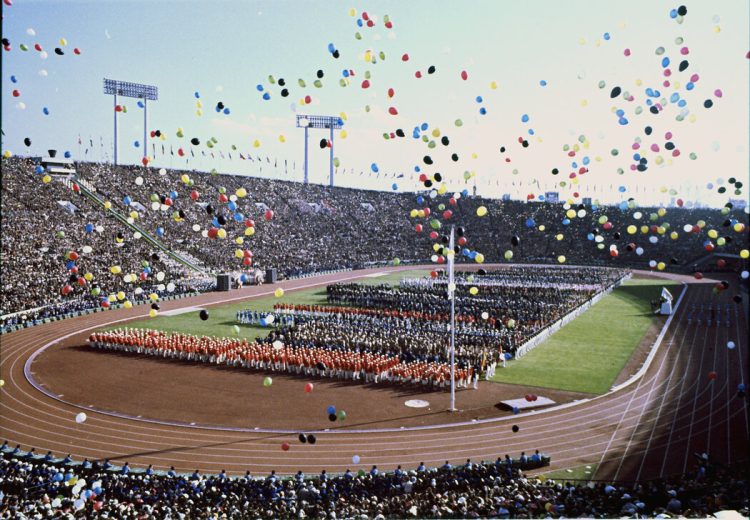The Summer Olympics, held every four years, is one of the most significant global sporting events, uniting athletes from all corners of the world to compete in various disciplines. Beyond its sporting prowess, the Olympics have a profound effect on the global sports market, driving changes in everything from sponsorship deals and media rights to infrastructure and digital engagement. With the 2024 Summer Olympics just around the corner in Paris, this article explores the potential impact of the event on the global sports industry, examining key trends, economic implications, and the long-term effects it will have on sports organizations, brands, and fans worldwide.
1. Boosting Sponsorship and Commercial Revenue
The Olympics have long been a goldmine for corporate sponsors, offering brands access to a global stage with billions of viewers across various media platforms. As the event approaches, major global brands are expected to pour significant investments into sponsorship deals, capitalizing on the Olympic Games’ broad visibility and international appeal. These sponsorship deals are a major revenue stream for the International Olympic Committee (IOC) and for the host nation, while providing companies with an unparalleled opportunity to connect with consumers on a global scale.
A. New Sponsorship Models:
While traditional Olympic sponsorships—such as those from companies like Coca-Cola, Toyota, and Visa—remain dominant, there is a shift toward more innovative partnerships. In recent years, we’ve seen an increased focus on digital-first sponsorships and partnerships with tech giants. For example, the Paris 2024 Olympics are expected to welcome tech companies like Alibaba and Intel, which are pushing the boundaries of digital engagement through AI, big data, and virtual reality.
Brands in sectors such as e-commerce, gaming, and esports are expected to continue ramping up their presence as the digital experience of the Olympics evolves. Companies like Amazon, for instance, have begun exploring ways to leverage the Olympics’ digital and streaming platforms for advertisements, engaging viewers through tailored content and virtual fan interactions.
B. Increased Focus on Sustainability in Sponsorships:
Sustainability has become a major focus for the IOC and sponsors alike. As companies and sports organizations continue to face pressure to improve their environmental impact, we are likely to see a stronger emphasis on eco-friendly and sustainable initiatives during the Paris Games. From reducing waste at Olympic venues to using sustainable merchandise and packaging, Olympic sponsorships are aligning themselves with growing global demands for social responsibility and sustainability.
2. Media Rights and the Digital Transformation
The Summer Olympics represent one of the largest media rights opportunities for sports broadcasters worldwide. In an era of streaming services and digital platforms, the Olympics are continuing to evolve in how they reach audiences, balancing traditional TV broadcasting with emerging digital channels.
A. Global Broadcast Reach:
Broadcast rights for the Olympics have traditionally been a huge financial driver for the IOC and the organizing committees of the host countries. With the rise of global streaming platforms such as Netflix, Amazon Prime, and Peacock, there is increasing competition for live sports rights, making the Olympics an even more attractive property. The IOC’s broadcast deal with companies like NBCUniversal for the U.S. market and Eurosport for Europe guarantees a broad global reach. However, as younger audiences are increasingly turning to digital platforms for content, the Olympics are working to expand their digital presence.
B. Streaming and Online Engagement:
For the Paris 2024 Olympics, expect a more integrated experience across streaming services and digital platforms. The IOC is expected to enhance its Olympic Channel, offering live streams, highlights, and exclusive content online. Additionally, Olympic content is being distributed through partnerships with social media platforms like YouTube and Twitter, allowing fans to access real-time highlights, behind-the-scenes coverage, and athlete-focused content. This shift will increase accessibility for younger, digital-native audiences who may not engage with traditional TV broadcasts.
More importantly, streaming platforms and social media channels have allowed Olympic fans to engage in more interactive ways. From live tweeting during competitions to real-time polls, the integration of digital engagement with Olympic broadcasts offers advertisers new ways to monetize the Olympics through interactive and personalized experiences.
3. Impact on the Host Country’s Economy and Infrastructure
Hosting the Summer Olympics is an enormous economic and infrastructural undertaking. The Paris 2024 Olympics, like previous host cities, will have a significant impact on both the local and global economy. The long-term effects of the Games on infrastructure, tourism, and city branding will be significant.
A. Infrastructure Investments and Urban Development:
One of the most tangible impacts of the Olympics is the infrastructure that is built or renovated to host the event. Cities invest billions of dollars in upgrading facilities, building new sports venues, improving transportation systems, and enhancing overall urban infrastructure. For Paris 2024, we’re seeing the development of new venues, an Olympic Village, and public transportation upgrades to ensure accessibility and sustainability for both the event and future use.
Beyond the immediate impact, the Olympics leave a legacy of improved infrastructure that can continue to benefit the city long after the Games end. This includes sports facilities, public transportation, and green spaces that serve the local community and tourism long-term.
B. Tourism and Hospitality:
The Olympics are a powerful driver of tourism, bringing thousands of visitors to the host city. In Paris, this means millions of people from around the world flocking to the French capital to watch the Games and participate in Olympic-related activities. According to various studies, the Olympics have been shown to provide a significant boost to tourism, with hotels, restaurants, and local businesses benefiting from the influx of international visitors.
In the case of Paris 2024, the city expects to see a surge in both short-term and long-term tourism due to the Games, with many tourists combining their Olympic visit with a broader exploration of France. The Olympics also serve as a platform for the host city to showcase its culture, landmarks, and traditions to the world.
C. Economic Impact and Job Creation:
The Olympics stimulate job creation, with new employment opportunities arising in construction, hospitality, tourism, and event management. Additionally, the global attention that comes with the Games can attract future investments and partnerships, boosting the host country’s economic development in the years following the event. For Paris, hosting the Olympics is an opportunity to boost its global status as an international business and tourism hub.
However, the economic impact can also come with challenges, as the cost of hosting the Games can be a heavy financial burden. The host country must balance the benefits of tourism and infrastructure development with the massive costs associated with organizing the event. Cities like London and Rio de Janeiro have faced challenges related to the financial strain of the Games, making it essential for the French government to manage the costs carefully.

4. The Rise of Digital Engagement and Fan-Centric Experiences
A significant change in recent years has been the way fans interact with the Olympics. As younger generations prioritize digital and social media, the IOC and Olympic organizers have been focused on creating fan experiences that are personalized, engaging, and interactive.
A. Personalized Fan Engagement:
In the past, the Olympics were largely about watching the action unfold on television. Today, fans expect a more personalized, interactive experience. This includes virtual reality experiences, behind-the-scenes content, athlete interactions via social media, and even augmented reality experiences for those in attendance at Olympic venues. With digital engagement at an all-time high, Olympic fans can engage with the Games in real time, vote for their favorite athletes, participate in online polls, and watch content on-demand.
B. Athlete-Focused Content:
Fans today want more than just highlights of the competition; they want to engage with athletes on a deeper level. The Paris 2024 Olympics are expected to feature more behind-the-scenes content, interviews, and insights into athletes’ lives and training regimens. The rise of platforms like Instagram, TikTok, and YouTube has given athletes a direct way to interact with their fans and build personal brands outside of traditional media. This direct connection fosters loyalty among fans and helps athletes cultivate their own marketing opportunities.
5. Long-Term Impacts on the Global Sports Market
While the immediate economic impacts of the Summer Olympics are significant, the long-term effects on the global sports market are just as important. Hosting the Olympics provides a global stage for emerging sports, helps grow local sports markets, and promotes global cooperation through shared athletic experiences.
A. Emerging Sports and Youth Engagement:
The inclusion of new sports in the Olympics—such as skateboarding, surfing, and rock climbing—helps drive the popularity of these activities around the world. These sports attract younger audiences and diversify the Olympics’ demographic, creating new opportunities for sports brands to engage with the next generation of athletes and fans. For Paris 2024, these sports will take center stage, offering fresh content for media rights holders and sponsorship opportunities.
B. International Expansion of the Sports Industry:
The Olympics serve as a launchpad for global brands looking to expand into new markets. Sponsorship deals and media partnerships help companies tap into regional and international markets, while also growing sports organizations’ global presence. For instance, the IOC has been increasingly focused on expanding the Olympic brand into Asia, Africa, and Latin America, fostering international partnerships that benefit sports organizations worldwide.
Conclusion
The Summer Olympics are much more than a showcase of athletic excellence; they are a major event that drives economic, cultural, and technological change across the global sports market. From record-breaking sponsorship deals and expanded media rights to transformative fan engagement and digital content experiences, Paris 2024 promises to have a profound impact on the sports industry. The Olympics continue to shape how we experience sports, how brands interact with fans, and how cities invest in their futures. With evolving trends like sustainability, digital transformation, and the rise of new sports, the Games are poised to remain one of the most influential and far-reaching events in the global sports calendar for years to come.






























Discussion about this post